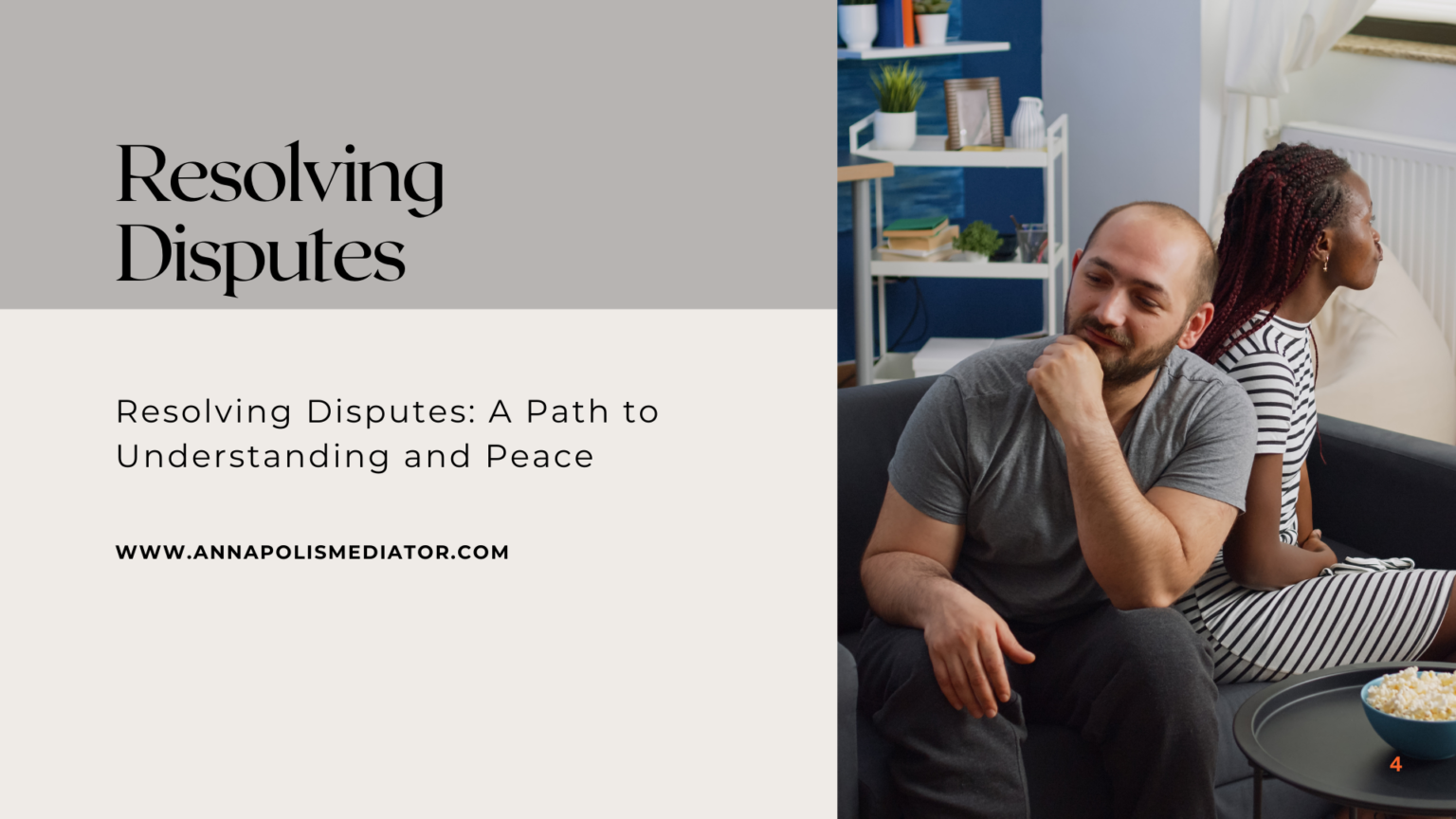Resolving Disputes: A Path to Understanding and Peace
Disputes are an inevitable part of human interactions. Whether in personal relationships, workplace settings, or international politics, conflicts can arise due to differences in opinions, values, and interests. While disagreements can sometimes lead to progress, they also have the potential to create lasting harm if not handled properly. Resolving disputes effectively is crucial not only for restoring peace but also for fostering understanding, collaboration, and long-term harmony. In this article, we will explore the significance of resolving disputes, the strategies for conflict resolution, and the benefits of taking a peaceful and cooperative approach to disagreements
The Nature of Disputes
Disputes arise from a variety of factors. Often, they emerge due to misunderstandings, poor communication, unmet expectations, or clashing personalities. In some cases, disputes can be rooted in deeper societal issues, such as inequality or injustice. These conflicts can escalate quickly, especially when emotions are involved, leading to a breakdown in communication and the perpetuation of negative feelings.
At the core of most disputes is a lack of understanding. Parties involved often focus on their differences rather than their common ground. This misalignment of perspectives can create a hostile environment, making it difficult to find a resolution that satisfies all parties involved. However, with the right tools and mindset, disputes can be resolved in a way that not only addresses the issues at hand but also strengthens the relationships between those involved.
The Importance of Conflict Resolution
Resolving disputes is essential for the well-being of individuals, communities, and organizations. Unresolved conflicts can lead to a range of negative consequences, including stress, decreased productivity, strained relationships, and even violence. On the other hand, effective conflict resolution can promote trust, understanding, and cooperation. It can transform adversaries into collaborators, fostering a more positive and supportive environment.
In personal relationships, unresolved disputes can create emotional distance and resentment, sometimes leading to the dissolution of relationships. In the workplace, conflicts can result in decreased morale and performance, and in more severe cases, they can lead to legal disputes or public scandals. On a global scale, unresolved conflicts between nations can lead to war and devastation. Therefore, resolving disputes not only helps to restore peace but also prevents further harm.
Strategies for Effective Conflict Resolution
There are several strategies and approaches to resolving disputes, each of which is tailored to the nature and context of the conflict. Below are some of the most common methods:
1.Communication and Active Listening:
The first step in resolving any dispute is open and honest communication. It’s essential for all parties involved to express their thoughts and feelings in a respectful and clear manner. Active listening plays a crucial role in this process. It involves fully concentrating on the speaker, understanding their perspective, and responding thoughtfully. By listening actively, individuals can gain insight into the root cause of the dispute and demonstrate empathy, which can pave the way for mutual understanding.
2.Mediation:
Mediation is a process in which a neutral third party helps facilitate communication between conflicting parties. The mediator does not make decisions for the parties but instead encourages dialogue, identifies common interests, and helps explore possible solutions. Mediation is particularly effective when emotions run high, as the mediator can provide a calm and unbiased perspective that enables the parties to find common ground.
3.Negotiation:
Negotiation involves direct communication between the parties involved in the dispute to reach a mutually acceptable solution. It requires compromise and flexibility, as both sides may need to adjust their positions to find a middle ground. Successful negotiation involves understanding each party’s interests, exploring various options, and agreeing on a solution that benefits both sides as much as possible.
4.Conflict Resolution Training:
Preventative measures, such as conflict resolution training, can be highly effective in minimizing disputes before they escalate. Training programs provide individuals with the skills and strategies they need to handle conflicts in a productive manner. These programs often focus on communication, emotional intelligence, and problem-solving techniques, which empower individuals to resolve disputes on their own without the need for external intervention.
5.Restorative Justice:
In some cases, particularly when a dispute involves harm or wrongdoing, restorative justice can be an effective way to repair relationships. This approach involves bringing together both the victim and the offender in a controlled environment to discuss the harm caused and work towards healing. Restorative justice emphasizes accountability, understanding, and the restoration of relationships, rather than punishment.
6.Collaborative Problem Solving:
This approach encourages all parties to work together as a team to find a solution that addresses the needs of everyone involved. Rather than viewing the conflict as a battle to be won, collaborative problem solving focuses on finding win-win solutions that everyone can agree on. This approach fosters cooperation and encourages creativity in finding solutions.
Benefits of Resolving Disputes Peacefully
There are numerous benefits to resolving disputes in a peaceful and constructive manner:
- Improved Relationships: Resolving conflicts in a respectful way can strengthen relationships by fostering trust and mutual respect. It can turn adversaries into partners and create a sense of shared understanding.
- Enhanced Cooperation: When conflicts are resolved peacefully, it becomes easier to collaborate and work together towards common goals. This is particularly important in professional environments and community settings.
- Emotional Relief: Unresolved disputes often cause stress, anxiety, and frustration. Resolving conflicts brings emotional relief, as it allows individuals to let go of negative emotions and move forward with a sense of closure.
- Increased Productivity: In workplaces and organizations, resolving conflicts can lead to a more harmonious environment, which in turn boosts morale, creativity, and overall productivity.
- Peace and Stability: On a larger scale, peaceful conflict resolution can contribute to societal harmony, reducing the likelihood of violence and fostering a more stable and equitable society.
Conclusion
Disputes, though inevitable, do not have to lead to destruction or division. By embracing strategies for effective conflict resolution, individuals and groups can navigate their differences and emerge stronger. Communication, empathy, and collaboration are essential tools for resolving disputes in a manner that promotes peace and understanding. Whether in personal relationships, professional environments, or international affairs, resolving disputes peacefully is a powerful path to healing, growth, and lasting peace.
Advertisement:
Looking for ways to improve your conflict resolution skills or manage disputes more effectively? Explore Susen Sunder the innovative platform that offers expert training, mediation services, and tools for fostering better communication and understanding. Visit Susen Sunder today to learn how to resolve disputes with confidence and create a more peaceful world.


